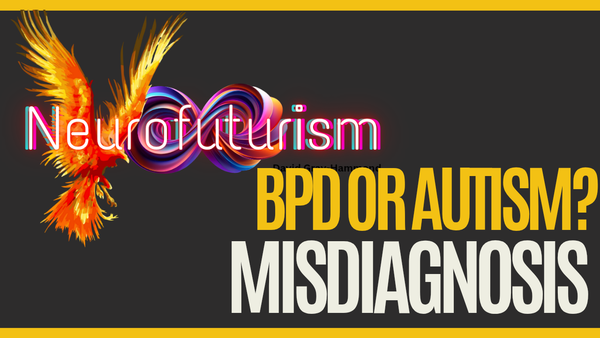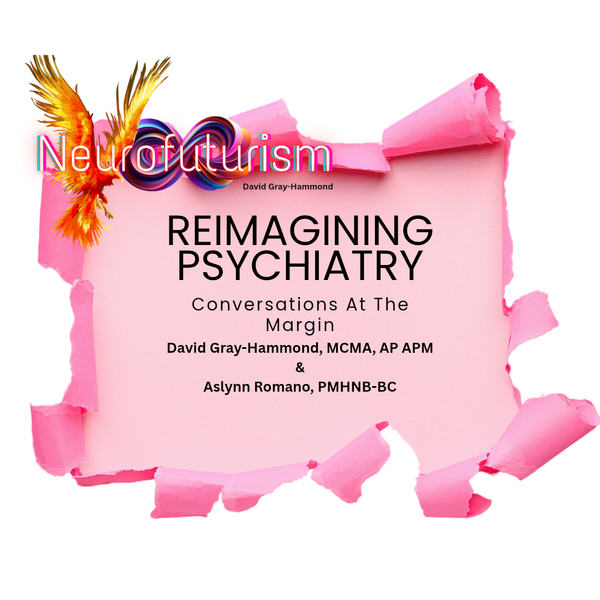Autistic Parenting: Parenting through burnout
Adulting is hard enough, parenting is hard enough. Together they come with a number of considerations for how we can be effective in our role as Autistic parents. In particular, we have to consider the impact of Autistic burnout, which can have a significant effect on not just us, but also our famil

Adulting is hard enough, parenting is hard enough. Together they come with a number of considerations for how we can be effective in our role as Autistic parents. In particular, we have to consider the impact of Autistic burnout, which can have a significant effect on not just us, but also our families. Autistic parenting is a challenge with many positives and some significant challenges.
What is Autistic burnout and how does it relate to Autistic parenting?
"Autistic burnout is a syndrome conceptualized as resulting from chronic life stress and a mismatch of expectations and abilities without adequate supports. It is characterized by pervasive, long-term (typically 3+ months) exhaustion, loss of function, and reduced tolerance to stimulus."
Raymaker et al, 2020
Burnout doesn't always look like lying in bed unable to function. For parents, responsibilities do not go away simply because we have no cognitive resources left. Not to mention that capitalism trundles on, and for those of us who are financially supporting young people and children, we still have to work.
Autistic burnout can alter the way that we parent our children, burnout can make us snappier, and impact on our decision making and executive function (Munday, 2022). Burnout also presents risks that are associated with how we are perceived as disabled parents in our current society.
How does society view Autistic parents?
There are two particularly irksome views associated with being an Autistic parent. One is to view us as being subpar parents, the other is that we can't be parents. Neither of these are universally true. Autistic parents can and do exist, and represent a wide selection of parenting styles and abilities.
Something that is particularly problematic, however, is the way that society holds us responsible for negative outcomes in our children's lives in the absence of good quality support. This institutionalised parent carer blame (Clements & Aiello, 2021) can range from being sent on parenting course to "improve" our parenting skills, through to demonstrably hostile accusations of things like Fabricated or Induced Illness (FII) (Gray-Hammond & Adkin, 2022).
As we see in the aforementioned research from Clements & Aiello (2021) Autistic parenting is often seen as the site of catastrophe, when in reality such occurrences could be avoided with suitable support. Is it any wonder that Autistic parents often experience burnout when they are made to fulfill not just their parenting role, but to also fight with Local Authorities and services over provision that their children are legally entitled to?
What might burnout look like in Autistic parenting (Dysregulation)?
When we're burnt out, we often need another person to co-regulate with us, meaning that one person share's their calm with us. Co-regulating our children can be a challenge because burnout can leave us emotionally dysregulated and somewhat dissociated. This can be more of a challenge for people parenting alone, or co-parenting over distance. They may not necessarily have another adult around to help them co-regulate back to a baseline state of emotions.
Parenting together doesn't always guarantee co-regulation either, in fact, dysregulation of one family member can lead to a state of co-dysregulation in which each person further dysregulates the others (Adkin, 2023). When we are in this state of dysregulation, we are more likely to have a reactive parenting style.
What might burnout look like in Autistic parenting (Executive Function)?
Executive function, or the ability to plan and execute tasks, can also suffer when we are burnt out. Parenting is full of decisions, from what to prepare for lunch, through to what school they should attend or rapid decisions such as if they need medical attention. These decisions can become overwhelming and may result in choices that can have serious repercussions. It is also incredibly frustrating to not be able to effectively make decisions in real time, which can add to our dysregulation.
This in particular highlights the issue of brain fog which can be a very common feature of burnout. This refers to the feeling of not being able to think clearly and can result in problems like choice paralysis and further frustration.
What can we do about Autistic burnout as parents?
There are practical things that we can do to make our lives as Autistic parents easier:
- Ear defenders/Ear plugs or other sensory accommodations
- Having a space to take yourself away and re-regulate ourselves briefly
- Good communication with people who understand the nuances of our parenting situation
- Remembering to take care of ourselves and eat where possible, fed is best
- Break time down into manageable units, try not to get overwhelmed by future demands
Feel free to add comments with your own helpful tips, we do not exist in isolation and can often share in problem solving.
Resources
References
Adkin, T. (2023) What is meerkat mode and how does it relate to AuDHD? emergentdivergence.com
Clements, L., & Aiello, A. L. (2021). Institutionalising parent carer blame. The Experiences of Families with Disabled Children in Their Interactions with English Local Authority Children’s Services Departments. Cerebra. University of Leeds.
Gray-Hammond, D. & Adkin, T. (2022) Creating Autistic Suffering: Fabricated or Induced Illness, state sanctioned bullying. emergentdivergence.com
Munday, K. (2022) Autistic parenthood: mental load burnout. autisticltd.co.uk
Raymaker, D. M., Teo, A. R., Steckler, N. A., Lentz, B., Scharer, M., Delos Santos, A., ... & Nicolaidis, C. (2020). “Having all of your internal resources exhausted beyond measure and being left with no clean-up crew”: Defining autistic burnout. Autism in adulthood, 2(2), 132-143.


